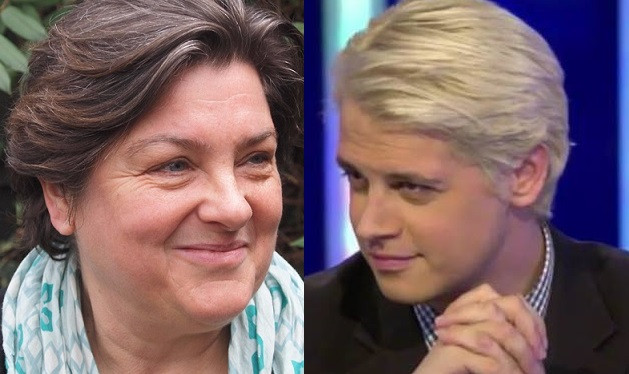Why we defied the safe space movement for a free speech debate at Manchester University

How did we end up in a situation where speakers are being banned by students' unions on inappropriate grounds? In October, the University of Manchester Students' Union decided to first ban Julie Bindel and then Milo Yiannopoulos because their views "could incite hatred against both transgender people and women who have experienced sexual violence".
They were invited to discuss on the topic: "Does modern feminism have a problem with free speech?" and was not focused on the transgender issues that framed the majority of the controversies in the media. The Free Speech and Secular Society disputed the representation of the speakers, arguing that while many of its members fundamentally disagreed with their opinions, they were just that − opinions.
Within our society, there are those who adhere to hard-left principles, those who are ardently right-wing, those who are inter-sectional feminists and those who do not identify as such; not to mention that we are inclusive of people irrespective of race, religion, sexual orientation, class, and so on. As the Students' Union prevented the FSS Society from organising the event, a group of students formed the Manchester Free Speech Association, free from their influence but without their funding.
Last week, the Manchester Free Speech Association held the panel discussion, giving the opportunity for the Students' Union banned speakers Julie Bindel and Milo Yiannopoulos a platform. Jane Fae was also invited as a third speaker as she was previously made unwelcome to the "Feminism in London" conference. Bindel supported Fae by withdrawing from the conference, and consequently Fae wrote a piece in The Guardian supporting Bindel when she was banned by Manchester's Students' Union.
Students need the opportunity in an intellectual environment to contest what they have been taught, but this prospect is being curtailed by the authoritarian interpretation of the safe space policy
The University of Manchester then abode by its Code of Practice on Freedom of Speech and ensured that it went ahead. The whole point of these debates is the freedom of expression regardless of personal views.
I was assigned to chair the debate, and with the support of the whole association, we all felt it was important that they were not restricted in what they could say, giving them the opportunity to express their views in the way they wanted them to be expressed. Our event, despite the expected controversy and protests, turned out to be incredibly civilised − there was no heckling or shouting and people asked challenging questions respectfully.
Whilst there were a range of views taken on a variety of topics, to say that these views are unacceptable to even consider is intolerant. Even if "harm" were to occur from such views, surely it would happen even without such debates? An open and free debate is the most effective way of challenging "harmful" views.
There were individuals attending that disagreed with the views of the speakers and welcomed the opportunity to challenge them on what they believe
There is no point in studying for a university degree if one does not think critically and rationally about the material. Students need the opportunity in an intellectual environment to contest what they have been taught, but this prospect is being curtailed by the authoritarian interpretation of the safe space policy.
The emphasis on creating a protective bubble in which individuals are not offended, or any comments are made that may have an effect on students' emotional stability, is at the expense of genuine intellectual discourse. The appeal to emotion threatens the possibility of discussion moving forward with logic and evidence being excluded from the debate. No one is obliged to take part, but no one else should be prevented from doing so.
For example, there were individuals attending the debate who disagreed with the views of the speakers, and welcomed the opportunity to challenge them on what they believe. Overall, no tangible harm was done to any of those who were in the audience and this should not be a surprise: there is no harm in the exchange of conflicting opinions. If anything, students become more enlightened by engaging with the different perspectives on issues.
Many people perceive Bindel and Yiannopoulos as having an abrasive style and nobody can claim that they are not provocateurs; indeed, many do not want to listen to them for that reason. However, the content of what the speaker wishes to express is of the essence, rather than the manner in which it is said, and it cannot be denied that other people find their way of communicating charismatic and thus persuasive.
The culture within students' unions is that if they do not like the views of the speaker, or the speakers themselves, then they do not deserve a platform. Disagreement is acceptable; shutting people out from intellectual discourse, however, is counter-productive. How can society progress if such views are not challenged in an intellectual debate?
And where better to do this than at university?
Elrica Degirmen is a student at The University of Manchester
© Copyright IBTimes 2025. All rights reserved.






















